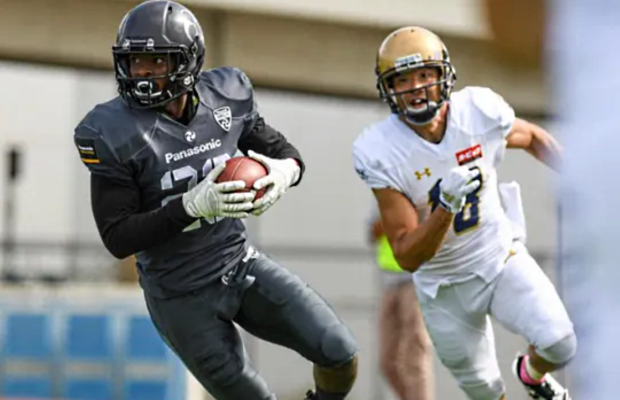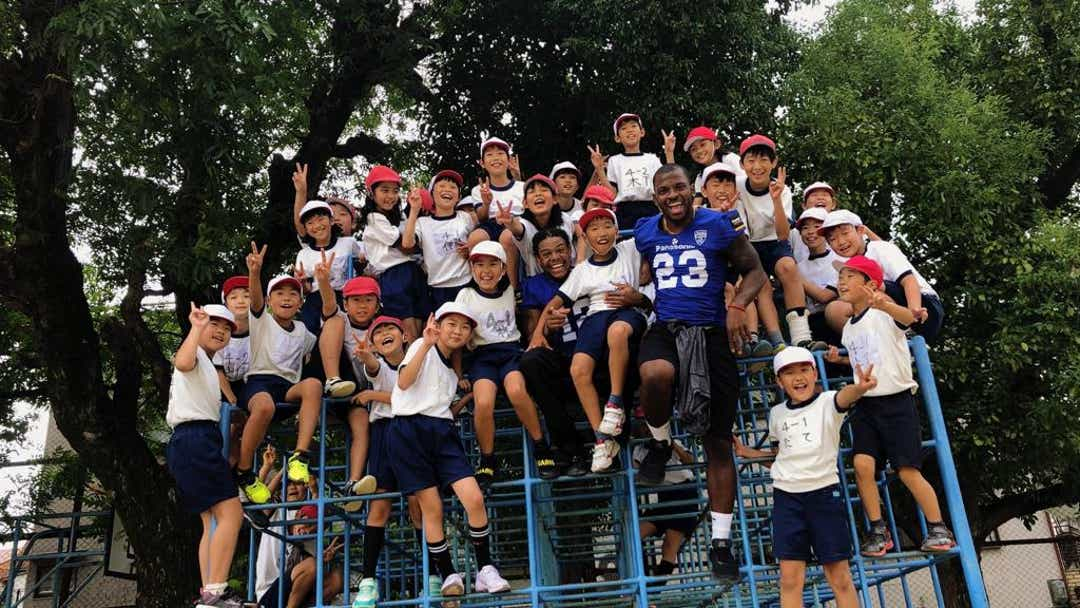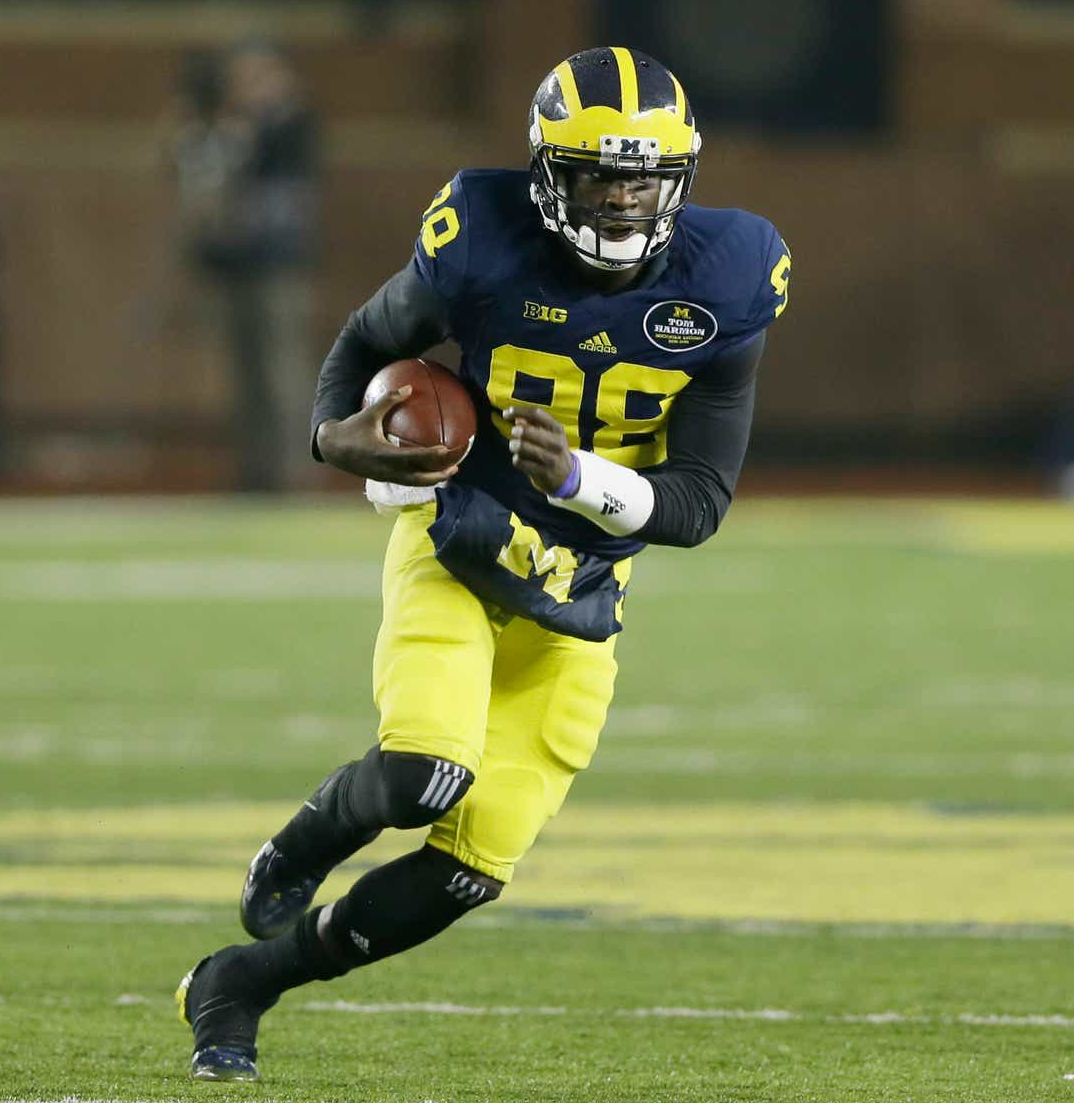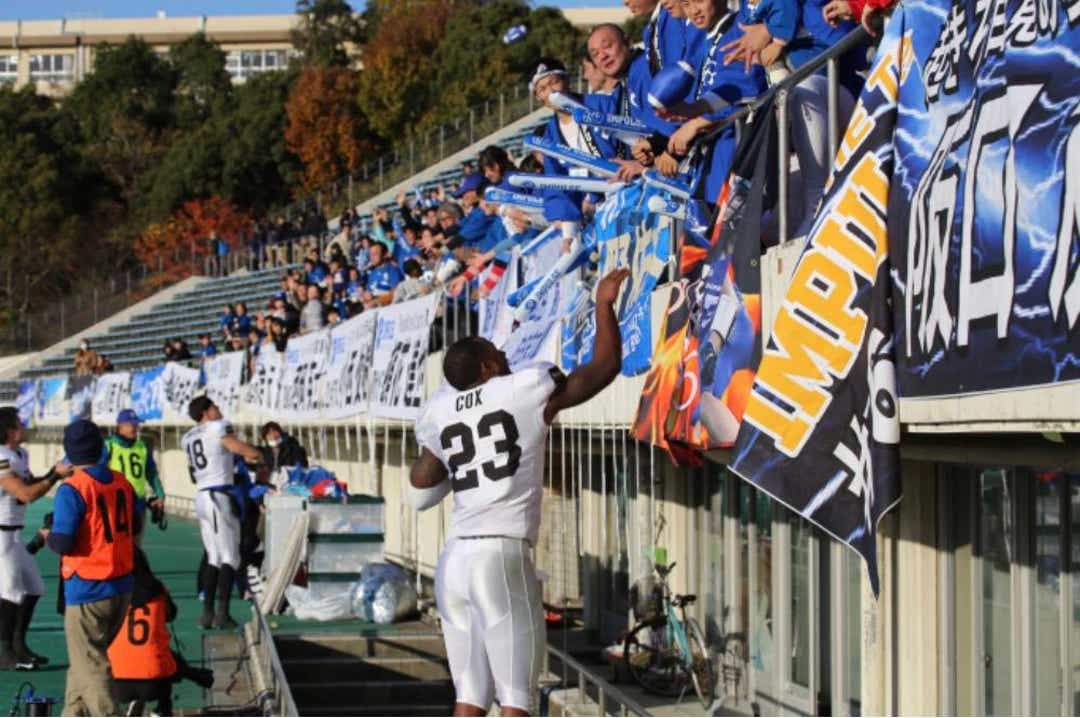Michigan players find pro football opportunities in a new frontier: Japan

By , The Detroit News
For the past three years, Joshua Cox has been on a football odyssey.
It’s a journey that’s taken him more than 15,000 miles: from Mount Pleasant to a tryout with the Arizona Cardinals and then across the world to Bolzano, Italy and finally to Osaka, Japan.
In that time, football has been a constant in a changing world for Cox, who is balancing playing professional football in Japan’s X-League with working online to finish his Master’s degree in business administration from Central Michigan.
Cox, 25, returned to Osaka last month to start training for his second season with the Panasonic Impulse, who lost in the championship game, the Japan X Bowl, in December. The league was set to resume its season — a stark contrast to the American sports landscape, where sports are on hiatus — before Japan declared a state of emergency on Tuesday because of the novel coronavirus.
Japan is better known for its cherry blossoms than its football, but the X-League isn’t some knockoff version of American football. In fact, it’s attracting players from abroad as another option to continue their football careers in the Canadian Football League or elsewhere.
In the Spring League, a scouting and development league that includes former and aspiring NFL players, a team from Japan held its own against the U.S. team. It’s a sign that the competitive gap is closing and that the X-League could be a viable alternative.
Cox compared the competition level and speed of the game to NCAA Division I programs, similar to when he played defensive back at Central Michigan. The game-day atmosphere measures up favorably as well.
“It feels just like college (football). There are a bunch of people there and everyone is going crazy,” Cox said. “I would compare it to an NFL standard from a fan commitment perspective. They’re super loyal, hanging flags for games and wanting autographs and pictures.”
It’s something of a different world for Americans on X-League teams. Each team is limited to four import players on a roster and only two per team can be on the field at the same time. They play an eight-game season and game rules are similar to college football, with 12-minute quarters.
The Impulse play in the X-League’s top division, the eight-team X1 Super. Many of the teams are sponsored by large corporations, such as Panasonic; other teams include the Fujitsu Frontiers — who have won the last four X Bowl titles — along with the IBM Big Blue, Obic Seagulls, All Mitsubishi Lions and the Nojima Sagamihara Rise.
Read the original story by Rod Beard in the Detroit News.
Among the sponsored teams, a large majority of the players are employed by the company and play for the team. Within the other divisions in the X-League, there are other corporate-sponsored teams, but the majority is club teams. There are 12 more teams in the X1 Area Division, 18 in the X2 Division and 17 in X3.
‘It was really cool’
The X-League has an attractive structure that has brought several American players overseas, including former Michigan quarterback Devin Gardner, who played for the Nojima Sagamihara Rise in 2016, and was the league’s rookie of the year.
“It was really cool, getting a chance to play and experience their culture. It’s regular football,” Gardner said. “People think it’s some different form, but it’s American football and expanding and growing especially from when I got there.”

Joshua Cox visits a local school in Osaka with Panasonic Impulse teammates. (Photo: Special to Detroit News)
“It’s probably the third-best football in the world behind (the NFL and) Canada. If they start changing the rules and allow more Americans, it’ll pass Canada.”
Gardner had short stints as a receiver with the New England Patriots and quarterback with the Pittsburgh Steelers in 2015 before his trek to Japan. With the Rise, Gardner was a dual-threat quarterback, throwing for 1,746 yards, 12 touchdowns and nine interceptions, along with 370 yards and eight rushing touchdowns in eight games.
Gardner played two years in the X-League and moved to the Saskatchewan Roughriders in the CFL in 2018 before retiring from football and starting the Young Go Getters youth development program.
During his time in Japan, Gardner helped import other Michigan teammates, including receiver Jeremy Gallon and linebacker Mario Ojemudia. That infusion of American talent has helped increase the level of play, but the more noticeable jump is in the coaching ranks.

Former Michigan quarterback Devin Gardner played two years in Japan’s X-League. (Photo: Carlos Osorio, AP)
“The American coaches are really driving it,” Gardner said. “(The teams) can pay coaches and now they’re developing football and can have a couple of English translators so it’s an easy message to get across when you want something.”
An agreement last year between the CFL and the X-League will allow Japanese players to join the CFL. Japan joined 10 countries in a global expansion of American football that includes countries such as Germany, Mexico, Great Britain, Austria and Finland.
It could create myriad opportunities for players from smaller leagues and create a pipeline of talent that could stretch across the world.
“There is, quite literally, a world of gridiron football being played beyond North America, and a world of opportunity for our sport if we work and build and grow together,” CFL commissioner Randy Ambrosie said in a statement. “We are thrilled Japan’s National Football Association, and its X-League, are joining us in building bridges that connect the countries that love our game and want to see it grow.”
Where the X-League looks to have an advantage over the smaller leagues is the ability to pay its players handsomely. That includes the Americans and the players on the sponsored teams, who work during the day and practice long hours three times during the week.
It shows a different level of dedication to playing the sport than even the American players, who generally don’t have another job besides football.
“If you land on the right team, it’s the most you can make outside the NFL; you make more than CFL players,” Cox said. “They’re super loyal so compared to Americans, instead of finding cheaper players, here they try to keep you as long as possible. If you stay loyal to them, they’ll stay loyal to you.”
‘Sports are huge in Japan’
Although the football aspects are much the same, adjusting to the Japanese culture wasn’t as easy. With only a couple of Americans on each team and playing halfway across the world, it can be a tough transition with an unfamiliar language, culture and country.
“I was able to adjust quickly. Where I was in Italy, I was near the border of Germany and Austria. It was a German town and the languages were German, Italian, then English,” Cox said. “I got over here and no one speaks English in Japan. I go to Japanese school twice a week for 90 minutes a day. The culture is super cool and now I can see why people go overseas and play sports.

Joshua Cox signs autographs for fans after a Panasonic Impulse game. (Photo: Special to Detroit News)
“Sports are huge in Japan. They have so much tradition and kids look up to you. I get to help coach a high school team and go to a kindergarten and play with them at recess. It’s actually a lot of fun. They just like hanging out with athletes.”
Gardner found that the transition took a bit more open-mindedness.
“It’s different, one of the more different I’ve experienced. It can get annoying,” Gardner joked. “People are respectful and it will never waver. You’ll have a conversation with someone and they’ll bow and apologize a million times because stepping on someone’s toes or disrespecting them is not allowed. It’s a part of their culture and everybody is in line there.”
As the coronavirus continues its spread, the hiatus could delay the start of the X-League until October and trim the schedule to three games. Cox is looking to finish his degree, become certified bilingual in Japanese and possibly continue work with the X-League — off the field.
“I used to put my head down just thinking about football and everybody looked at me as the one who would make more of myself than football,” Cox said. “I’m about to finish my masters; I only have one or two classes left. I could see myself staying here and being the bridge to helping the Japanese to elevate to American football level.”
Story reprinted by author’s permission